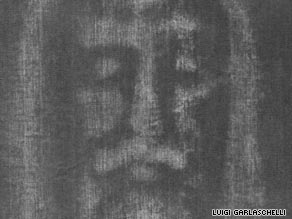Now, all that is great, we need to be optimistic, we need to keep searching and wondering and, as is well known, the answer to the question "is there life elsewhere" would be profound regardless of whether it is positive or negative. But the book is rather long and tends to get a bit boring at times. Drake's "equation" for instance is hardly anything remarkable. It's just a back-of-the-envelope calculation that anyone with high school knowledge can think of (except that data may be missing, and they still are). At times, there are diversions towards religion, history or philosophy. What I found remarkably shallow is the author's claim that it was monotheistic religions (and, by this, he means the Abrahamic religions) are conducive to science. Namely, Davies claims, in the book and elsewhere, that, as opposed to Hinduism, the Abrahamic religions hold that the universe had a beginning. He also claims
The Greek philosophers taught that humans could come to understand the world by the existence of reason, which achieved its most disciplined form in the rules of logic and mathematical theorems that followed therefrom. They asserted that the world wasn't arbitrary or absurd, but rational and intelligible, even if confusing and complicated. However, Greek philosophy never spawned what today we would understand by the scientific method, in which nature is `interrogated' via experiment and observation, because the Greek philosophers' touching belief that the answers could all be deduced by pure reason alone.Davies' claims suffer from a number of historical and logical inaccuracies.
Meanwhile, monotheism increasingly shaped the Western world view during the formative stages of science. Judaism represented a decisive break with almost all contemporary cultures by positing an unfolding cosmic narrative based on linear time.
The concept of linear time, and a universe created by a rational being and ordered according to a set of immutable laws, was adopted by both Christianity and Islam, and was the dominant influence in Europe at the time of Galileo. The early scientists, who were deeply religious, regarded their work as uncovering God's plan for the universe, as revealed through hidden mathematical relationships. What we now call the laws of physics they saw as thoughts in the mind of God. Without belief in a single omnipotent rational lawgiver, it is unlikely that anyone would have assumed that nature is intelligible in a systematic, quantitative way, mirrored by eternal mathematical forms.
- It is true that ancient scholars had not fully developed the scientific method, but it is not true that they only relied on things they could do in their heads. Indeed, the name of Archimedes is never mentioned in the book. Neither is any mention of the Antikythera mechanism. It is true that these things belong, perhaps, to the domain of engineering, but it is clear that nobody could have built them by thinking only, without any kind of experimentation. The claim that "nature [was not] `interrogated' via experiment and observation does not seem to be correct.
- When Davies speaks of monotheistic religions, he means the Abrahamic ones. There have been other monotheistic religions which are not included in his `reasoning', for instance, Zoroastrianism.
- Davies speaks of what--he thinks--monotheistic religious scientist achieved several centuries after these religions were invented, but he never mentions what happened, for example, when Christianity became the official religion of the Roman Empire. Who got rid of all work in mathematics and reason, up to that point, if not the new monothestic religion (or the particular version which the emperors adopted)?
- The claim that "linear time" and "universe which has a single beginning" are both mentioned by monotheistic religions does not imply that monotheism implies these concepts. It is, merely, an accident that these concepts were adopted by the Jews (and hence by Christians and Muslims). The implied implication is not valid.
- "Early scientists were deeply religious." We've heard this argument many times. But why is not Davies considering the obvious fact that those scientists had to be religious in order to be allowed to do what they were doing. Yes, some of them believed in god (there was no alternative anyway), some did not, but everyone had to pretend and behave as if they actually believed. So we will never know the truth. Imagine, for instance, the future historian who will claim that "in 20th. c. America, every president was highly religious and always appeared to pray in public". We, of course, know that without appearing to be religious they stand no chance of getting elected.
Davies seems to be a smart person. So let us examine why he often digresses to praise monotheism. Well, there are several reasons, among which I can identify at least two:
- First, he's director of SETI which is privately funded, so he needs to please donors. Many of them (by virtue that they come from a religious country) are probably religious.
- Second, he probably likes awards. For example, he's a recipient of the Templeton prize. This is a very peculiar prize because it is given to all kinds of people, including ones who have caused harm. The prize has been criticized by Richard Dawkins ("[the Templeton prize is] usually [given] to a scientist who is prepared to say something nice about religion"), Sean Carroll (people cannot take Templeton research grants when they do not support Templeton's beliefs) and Martinus Veltman ("the Templeton prize bridges the gap between sense and nonsense")
On the Christian front, Davies seems to be a friend of John Lennox who likes to use "mathematics" and "logic" and "science" to support his religious claims. (The worst of all, in this conversation, is that Davies and Lennox, a physicist and a mathematician, discuss "specified complexity", a bogus concept invented by William Dembski for the sole purpose of promoting creationism.)
Last but not least, I can't fail but notice that the website (mentioned in the Eerie Silence) IETI (invitation to extraterrestrial intelligence, created because if--they claim--aliens get in touch with us, they might do so over the Internet) contains 100 individuals (inviting aliens) among which a certain Sohail Inayatullah who "brings an Islamic and Indian tantric perspective to understanding the Other, space travel, and alternative futures."
The upshot of all this is that, by trying to please everyone, including those who have nothing to do with science, one ends up having their work used for the purposes of the those who do nonsense.











